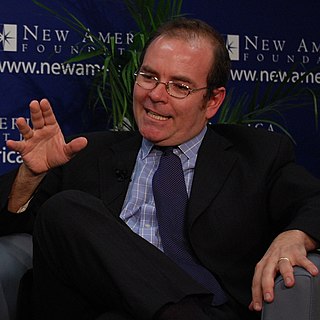A Quote by Thomas Homer-Dixon
New information technologies-including email, the web, and computerized blast-faxes and phone calls-have fundamentally changed the landscape of political competition in modern democracies. They've done so in three ways: by dramatically boosting the access of individuals and special interests to politically potent information, by making it easier for such people to coordinate their activities and exert political power, and by greatly increasing the pace of events within our political systems.
Quote Topics
Access
Activities
Blast
Calls
Changed
Competition
Coordinate
Done
Dramatically
Easier
Email
Events
Exert
Fundamentally
Greatly
Including
Increasing
Individuals
Information
Interests
Landscape
Making
Modern
New
New Information
Our
Pace
People
Phone
Phone Call
Phone Calls
Political
Political Power
Political System
Political Systems
Politically
Potent
Power
Special
Special Interest
Special Interests
Systems
Technologies
Three
Three Ways
Ways
Web
Within
Related Quotes
Our marvelous new information technologies boost our power and opportunities for political engagement, but they can also disempower us by contributing to extreme political mobilization that sometimes overwhelms our institutions. These institutions were designed for rural societies operation at a tiny fraction of today's speed and with a citizenry vastly less capable that today's. It's unclear how they will change to adapt to the new reality, but change they must.
Climate change should not fundamentally be seen as a political or partisan issue, but it has been turned into a political football primarily by the climate deniers who have a vested interested in maintaining the status quo. That includes certain industrial interests, financial interests and political interests.
I think China thinks information technology is less important than we think it is in the US, economically, and more important politically. And so Chinese internet companies are extremely political, they're protected behind the great firewall of China, and investment in Alibaba is good as long as Jack Ma stays in the good graces of the Chinese communist party. Alibaba is largely copying various business models from the US; they have combined some things in interesting new ways, but I think it's fundamentally a business that works because of the political protection you get in China.
For me, what is political is very personal. Politics are not this abstract idea. Laws are the rules that dictate how we live our lives. What we eat is political. How we dress is political. Where we live is political. All of these things are influenced by political decision-making, and it's important to be part of the process.
If you share information widely, but you present that information in ways that fits your own view, you're actually still misrepresenting. So instead what you should do is figure out ways to build systems that allow people to experience and classify their information in ways that are meaningful for them.
The President appoints the U.S. Attorneys. They're political in a certain respect. But the Department of Justice - the power that they hold is so great, it's life and limb, you know - put you in jail, make you run up hundreds of thousands of dollars of legal costs. Even though we understand that political appointees take these jobs. We don't assume that the party in power is going to use that kind of power to advance its political interests.
There is no such thing as being non-political. Just by making a decision to stay out of politics you are making the decision to allow others to shape politics and exert power over you. And if you are alienated from the current political system, then just by staying out of it you do nothing to change it, you simply entrench it.
I think the most exciting thing is access to information. People's ability to document things and expose things that may have not otherwise been documented and exposed. All the information you want is available instantly, which is overwhelming, but I think can have a positive change on the political process and accountability for leaders and corporations.

































